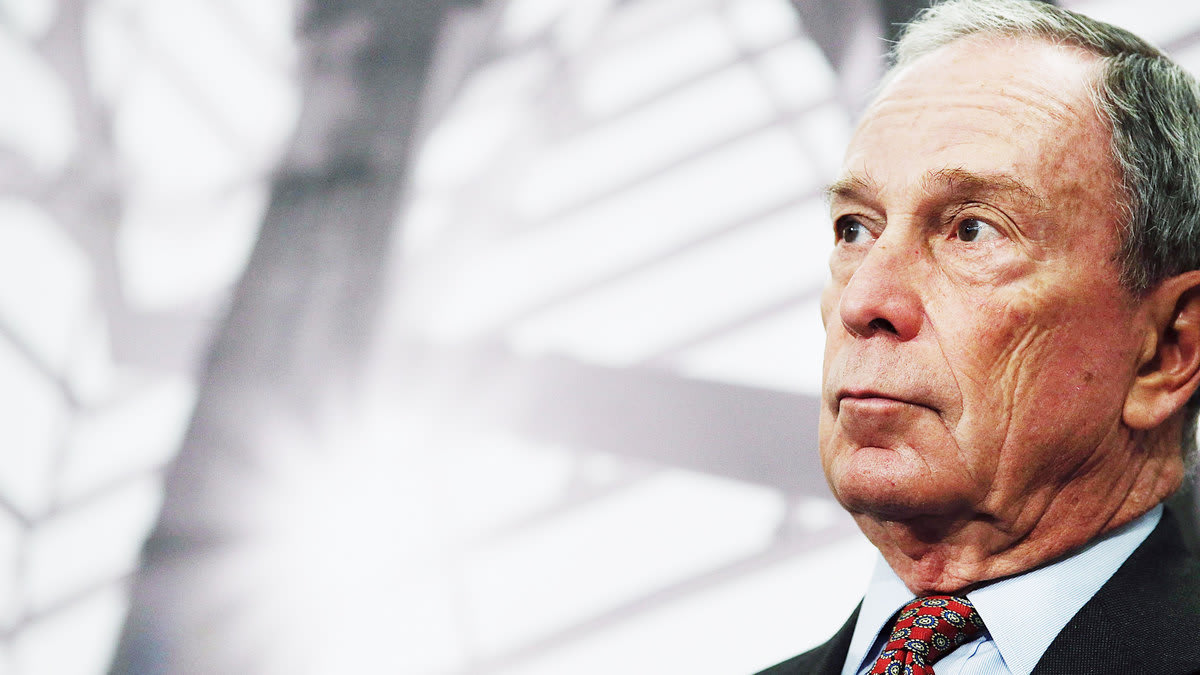No one has ever seen this level of involvement by the Muslim community in a presidential election before. And not just in Michigan, which has long been known for having a large Muslim population active in politics. But even places like Iowa, where Muslim Americans were very active in this year’s Democratic caucus.
And come Tuesday, we may see Muslims tip the balance in Virginia’s tight Democratic primary given the tremendous spike in Muslim Americans becoming active in politics there since 2016. What caused that surge in Muslim activism? Simple. Donald J. Trump. His open demonization of Muslims during the 2016 election didn’t drive Muslims to the shadows. Instead, it drove them to the ballot box—and even on to the ballot.
That’s especially true in Virginia. For example, this past November, Ghazala Hashmi became the first Muslim woman ever elected to the Virginia state Senate, and Abrar Omeish, 24, made history as the first Muslim elected to the Fairfax County School Board. And earlier in 2019 in a special election, 27-year-old Ibraheem Samirah, a dentist of Palestinian heritage, was elected to the Virginia House of Delegates, making him the second Muslim to serve in that chamber along with Delegate Sam Rasoul.
As Senator Hashmi remarked, Trump’s anti-Muslim rhetoric “made it abundantly clear to many of us that we need a high level of engagement, whether we are running for office ourselves or helping others to run.” Hebah Kassem, a millennial who is an organizing associate at the Progressive Caucus Action Fund, noted that the increased activism by Muslims has made the community keenly aware that collectively they “have the potential to make a real difference in this election.” That realization has fueled even more Muslim political activism.
The numbers back that up. Wa'el Alzayat, the chief executive officer at Emgage, an organization focused on increasing Muslim political engagement, explained in Virginia there are now a record 214,000-plus Muslims registered to vote, with approximately 80 percent living in the densely populated Northern Virginia area near Washington, D.C. Estimates are that Muslims, who have in recent years voted overwhelmingly for Democrats, constitute 11 percent of the total voters in that area.
Alzayat noted that in the 2018 midterm, nearly 70 percent of Muslim voters cast a ballot—higher than the state average of 60 percent. He’s confident that this year will also be marked by a high level of engagement by Muslims, especially among younger Muslim voters (18-34) who now represent 30 percent of Virginia’s Muslim community.
So who are the Muslims in Virginia supporting in this Tuesday’s primary, a state with the third most delegates in play on Super Tuesday with 99 pledged delegates at stake? The Muslim community may be monotheistic, but we are certainly not monolithic—and that’s true for politics as well. But clear favorites in Virginia are becoming apparent, with Bernie Sanders leading the way, followed by Liz Warren.
While there has been no formal polling of Virginia’s Muslims, Alzayat shared that his organization’s surveys found Sanders to be the favorite. Virginia state legislator Ibraheem Samirah, who endorsed Sanders earlier this week, explained that the Sanders campaign has been canvassing in the Muslim community and at mosques for many months.
And Sanders has a connection to the Muslim community dating back to 2016. He’s even affectionately referred to as “Amo Bernie” (“Amo” is Arabic for Uncle) as I saw first-hand when he spoke at last summer’s large Muslim Convention (ISNA) in Houston.
Hashmi has endorsed Senator Warren and introduced the Massachusetts senator at a large rally recently held in Arlington, Virginia. She says she has witnessed a great deal of Muslim support on behalf of Warren, both online and at events.
While Sanders and Warren appear to be the favorites and have Muslims on their campaign staffs, Mohamed Gula, Emgage's executive director, explained that there are Muslims working on the campaigns of just about every Democratic presidential candidate, including Mike Bloomberg, Pete Buttigieg—before he withdrew from the contest on Sunday night—and Joe Biden. Never before have we seen this level of activism. Nor have we seen Muslim Americans being so fully embraced by presidential campaigns.
The key issues for Muslim Democrats, per Alzayat, match up with the issues of concern of all Americans, starting with affordable health care. But then there are issues unique to the community, such as combatting anti-Muslim bigotry, ending Trump’s Muslim ban, and addressing U.S. foreign policy in the Middle East from Syria to Yemen to the Israel-Palestinian conflict.
But as Samirah noted, there has been “resistance” to Muslim American involvement by some “establishment Democrats” in Virginia, who see the surge of Muslim activism as a threat to their power, i.e., Muslims wanting more leadership positions within the Democratic Party power structure. And others, he noted, oppose changing U.S. policy when it comes to Palestine and Israel, which has caused “tension.”
Samirah, whom some may remember as the state legislator who protested Trump’s July speech in the Virginia statehouse telling Trump, "You can't send us back" in response to his call for “The Squad” to go back to their own country, did share that there’s one Democratic presidential candidate who has elicited the most negative reactions: Mike Bloomberg. That’s a direct result of Bloomberg’s widespread and unconstitutional surveillance of Muslims when he was mayor of New York City, which he shockingly defended during a Thursday night PBS interview by declaring, “But the people who flew those airplanes came from the Middle East." You have to wonder if Bloomberg’s apology for his racist stop-and-frisk policy and simultaneous defense of profiling Muslims is based on his calculation that black and brown voting blocs are powerful while Muslims are not. To be blunt, in past years that assumption about Muslim political activism may have been accurate, but not in 2020, and certainly not in states like Virginia.
Despite the criticism of Bloomberg by some, the Muslim Democrats I spoke to repeatedly expressed the same view I’ve heard from countless other Democrats: We will support whomever the Democrats nominate. As Samirah said, once the Democratic nominee is chosen, “the Muslim community will work overtime for that person in order to defeat Donald Trump.”

